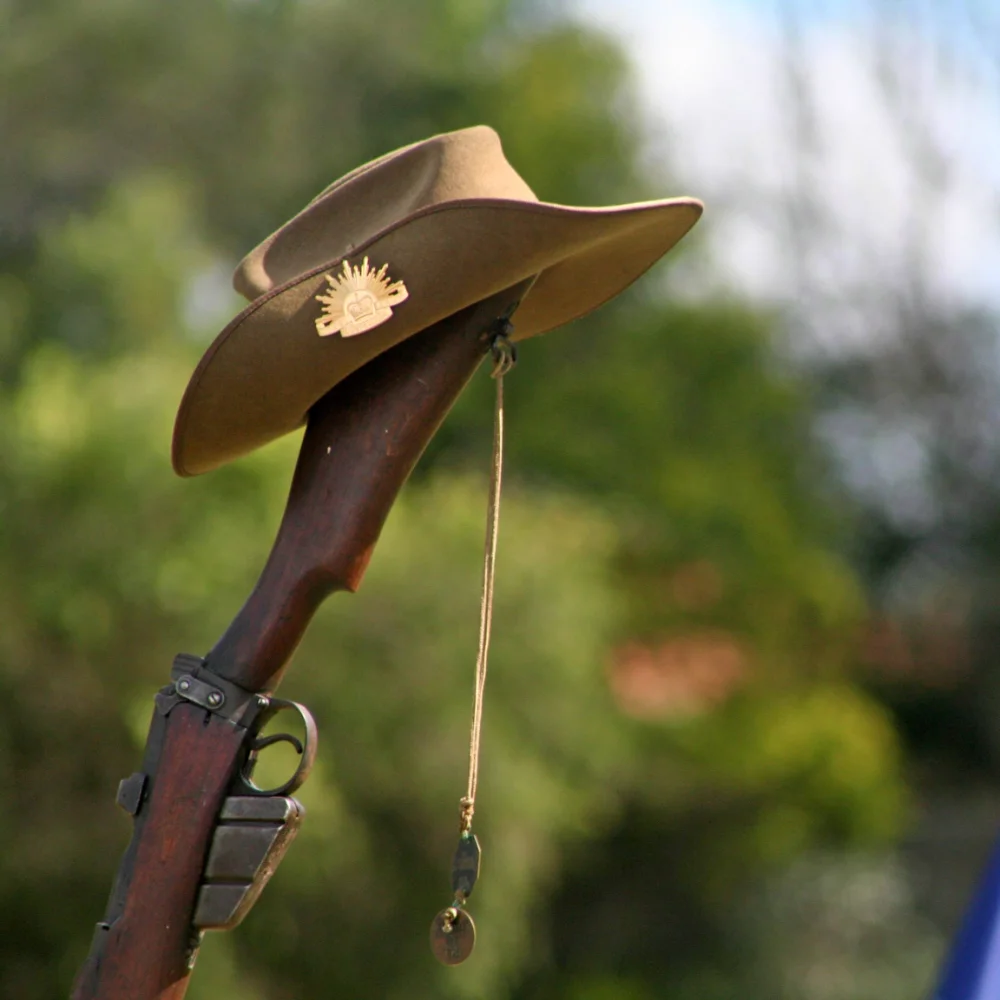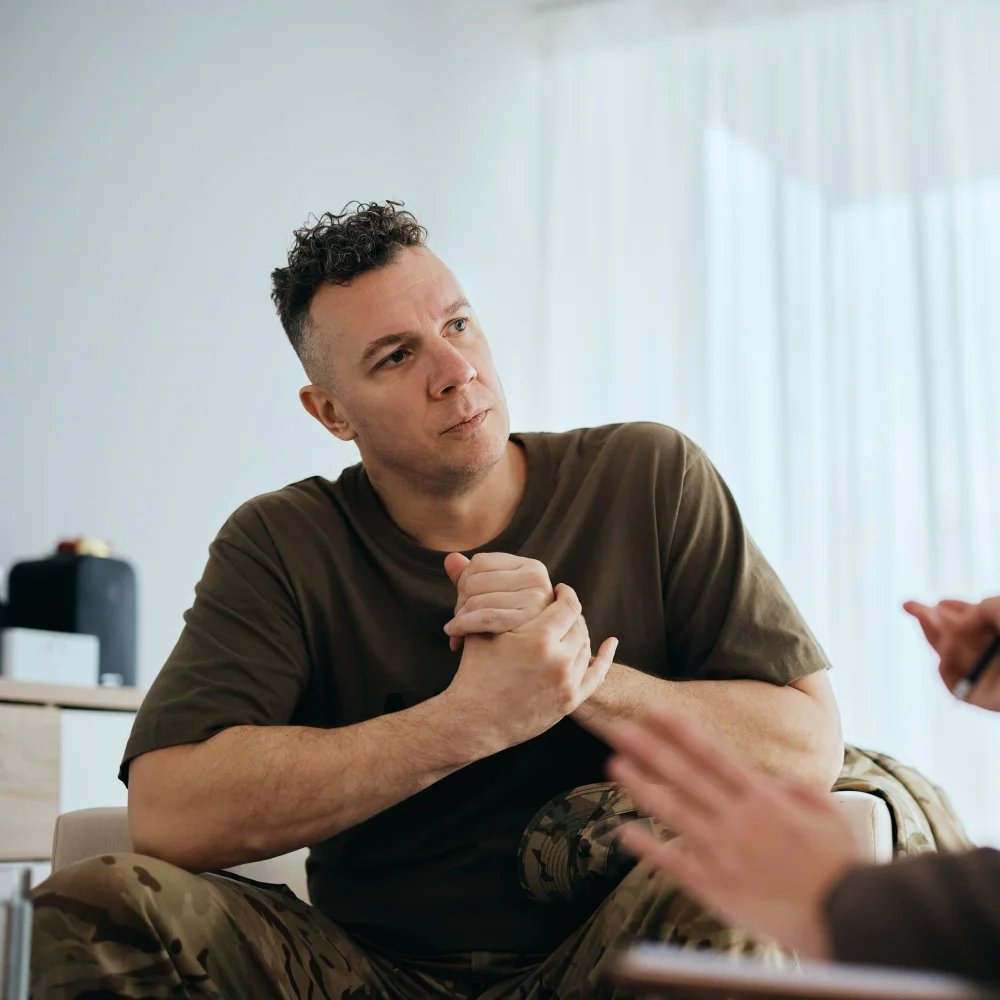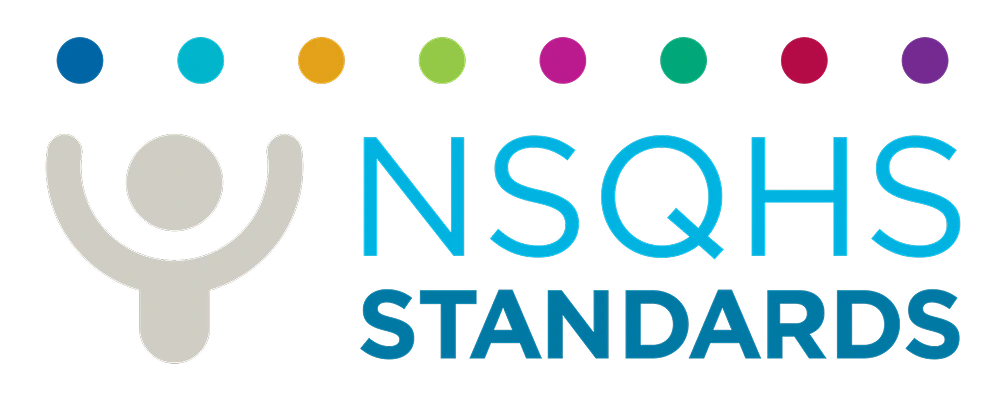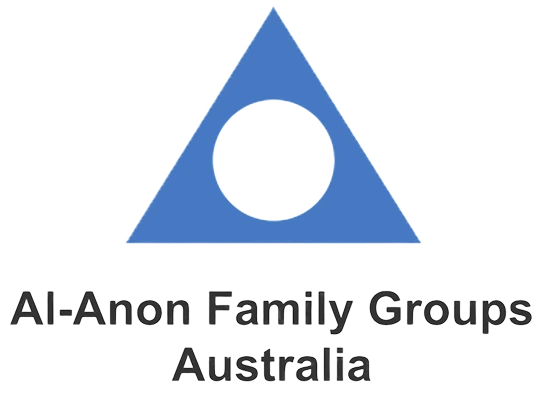A holistic approach to long-term recovery
We combine medical care, therapy, and alternative treatments like equine therapy and mindfulness to support your physical, emotional, and psychological wellbeing every step of the way.
We offer trauma-informed, addiction-focused DVA rehabilitation for drug and alcohol addiction, funded fully by the Department of Veterans’ Affairs, in a supportive environment of peers who understand.
Take a self-assessment or speak to someone now, with no pressure to commit.


This program was built for people who’ve carried the weight of others — now it’s your turn to be supported. With expert trauma therapy, peer connection, and 24/7 clinical care, you don’t have to recover alone.
Veterans, police, paramedics, firefighters, SES crews, and healthcare professionals struggling with addiction, trauma, or PTSD, including those supported by DVA.
By combining specialist trauma therapy, peer support, and holistic treatment, we create a safe space for healing, rebuilding, and reconnecting with what matters.
We treat both trauma and substance use together, with dedicated therapists, structured care, and a community of peers who truly understand your experience.
You’ll begin by detoxing at our private hospital in Geelong before moving to our inpatient residence in Essendon, where you’ll receive a personalised rehab plan that includes round-the-clock care, tailored trauma therapy, and access to holistic treatments.
Every person arrives with a different story. That’s why we guide you through four distinct stages — stabilising, healing, rebuilding, and planning ahead — with the right support at every turn.
Unsure where to start? Take a self-assessment or book a time to chat – both are 100% confidential.
We begin with a full medical detox (if required), trauma screening, and a psychological assessment to tailor your recovery journey.
This phase focuses on evidence-based trauma therapy, supported by peer groups and alternative healing options.
We help you build the skills, insight, and emotional resilience you need to sustain recovery beyond your stay.
We guide you through a structured transition into community-based recovery supports and future treatment pathways.
When it comes to trauma-informed rehabilitation for veterans and frontline professionals, few providers offer the depth of clinical care, peer support, and DVA-funded access that the Hader Clinic provides.
























































This short, confidential quiz takes less than two minutes and can help you make sense of what’s going on. Choose the category that feels most relevant to you — whether it’s alcohol, drugs, or a mix of concerns — and we’ll guide you through a few simple yes/no questions.
At the end, we’ll let you know if your answers suggest it might be time to consider rehab, and share safe, confidential options for getting started.

If you’re eligible for DVA rehab, your entire stay is fully covered. Our admissions team can walk non-DVA clients through private or self-funded options.
Fully funded for eligible DVA clients
No out-of-pocket costs with confirmed DVA cover. Other funding options available for non-DVA clients.

If you’re eligible for DVA rehab, your entire stay is fully covered. Our admissions team can walk non-DVA clients through private or self-funded options.
Fully funded for eligible DVA clients
No out-of-pocket costs with confirmed DVA cover. Other funding options available for non-DVA clients.

Not everyone arrives with a funding pathway in place, and that’s okay. In some instances, your employer may be able to sponsor your rehab, but whether you’re ineligible for DVA, waiting on confirmation, or need help exploring other options, we’re here to guide you through every step.
If you want fast access to our rehab services and prefer not to go through insurance or funding paperwork, self-funding is a straightforward way to secure your place and begin treatment immediately. Our team can walk you through the payment process and provide all required documentation.
You may be able to access your superannuation early on compassionate grounds if addiction or trauma has affected your ability to work. This option is common for first responders and veterans experiencing PTSD or substance use issues.
If you’re not eligible for DVA but have private health insurance, we’ll help you check your level of cover and potential rebate. Many policies can offset thousands in rehab costs, especially for medically recognised treatment.
If upfront costs are a barrier, we offer interest-free payment plans for eligible clients. This allows you to get the care you need now, while managing the financial side in a realistic and supportive way.
Our goal is to help you feel safe, understood, and strong again. With specialist care, peer connection, and long-term support, we walk with you every step of the way.
To access our DVA and first responders program, you’ll need to complete a pre-admission assessment and commit to a minimum 28-day inpatient stay. Our team will guide you every step of the way.
Clients must complete a trauma and addiction assessment before admission to ensure the program is clinically appropriate and tailored to their needs. If you’re covered under DVA, full funding is available. If not, alternative options like private insurance or payment plans can be explored. Your willingness to engage in a structured and supported recovery environment is key.
We’ve simplified the process to help you get the support you need quickly and without added stress. Once you reach out, our admissions team will assist with funding checks, clinical assessments, and program scheduling. For DVA clients, we’ll also manage your eligibility verification. Our focus is on removing barriers so you can start healing with clarity and support.
You’ve faced enough alone. If trauma, stress, or substance use is holding you back, reach out. We offer care that respects your service and supports your future.

Take a quick, private quiz to explore safe support options.

Schedule a confidential call with a specialist at a time that suits you.

Speak to someone immediately for guidance and support.
report significant PTSD symptom reduction after 90 days
remain drug-free 12 months after completing treatment
experience improved PTSD recovery outcomes with equine therapy
increase in long-term sobriety through peer group recovery programs
Our trauma-informed rehab program doesn’t just treat symptoms — it creates meaningful, measurable change. From improved mental health to long-term sobriety, we help veterans and first responders rebuild lives of purpose, connection, and strength. These results speak for themselves.
Our DVA-funded programs are led by qualified AOD staff with experience in trauma, addiction, and veteran-specific needs. Care is aligned with the NSQHS Standards and monitored under the ACSQHC to ensure clinical safety, psychological support, and cultural respect for every veteran.





We combine medical care, therapy, and alternative treatments like equine therapy and mindfulness to support your physical, emotional, and psychological wellbeing every step of the way.


Our clinicians, therapists, and peer workers bring deep expertise and real compassion. Many have worked on the front lines, and all are here to guide you toward lasting recovery.
Our Geelong hospital provides 24/7 medical support and specialist trauma care, while our Essendon clinic offers access to long-term recovery support, both built for healing and peace of mind. Our DVA residents can also book transitional housing at our dedicated Ocean Grove residence.
Medically supported detox, inpatient residential rehabilitation, and transitional housing programs.


If you’re ready to get help — or help someone else take the first step — our team can provide a confidential, same-day assessment to guide you toward the right care.
Speak to someone who understands
If you're a police officer, paramedic, firefighter, or other frontline worker without DVA arrangements, you're still welcome to access the program through private funding, superannuation, or a payment plan. Our admissions team will help inform you of your options and guide you through the application process so you don’t have to navigate it alone.
Support is also available through:
Yes. Active service members — including Australian Defence Force personnel or working first responders — may access our treatment program with appropriate leave and a supportive referral. We work discreetly with employers and agencies to create a care arrangement that respects your privacy while supporting your recovery goals.
You’ll receive:
Our DVA and First Responders Program is tailored to the unique pressures of military and emergency service life. It’s not just a treatment centre — it’s a rehabilitation provider that specialises in trauma, operational stress, and the transition to civilian life. With DVA funding and dedicated peer groups, we offer a space where you’re not just understood — you’re surrounded by others who get it.
Distinctive features include:
Yes. We prioritise your privacy throughout your stay. Whether you're a DVA client, an active service member, or a first responder in crisis, you’ll be treated with dignity and respect. All personal and health care information is protected under Australian privacy law and facility policy.
This includes:
We believe that healing includes the people who matter most. Families are part of the process, from education about trauma and addiction treatment to emotional support and reintegration planning. We offer resources to help your family understand what you’re going through and how they can be part of your recovery.
Support options include:
Once you complete your DVA rehabilitation program, we’ll help you transition into your next phase of recovery. Options may include transitional housing, outpatient care, or a tailored comprehensive aftercare plan. We work with you and your family to ensure stability, safety, and support as you return to regular living.
Post-rehab support may involve:
If you already hold a Gold or White card, we can fast-track your admission once the assessment process is complete. Our team will work closely with DVA or other funding sources to approve care and confirm your eligibility. Timeframes depend on availability and the complexity of your needs.
What helps speed things up:
Absolutely. We often connect incoming clients with past participants who’ve volunteered to share their experiences. These conversations can help clarify what to expect and offer hope at a time when you might need it most. Hearing directly from someone who has walked the path — and is now thriving — can help improve the quality of life for those just starting their journey.
We can also appoint a peer mentor to support you during early recovery — someone who knows firsthand what it’s like to face this kind of challenge and come out the other side stronger.